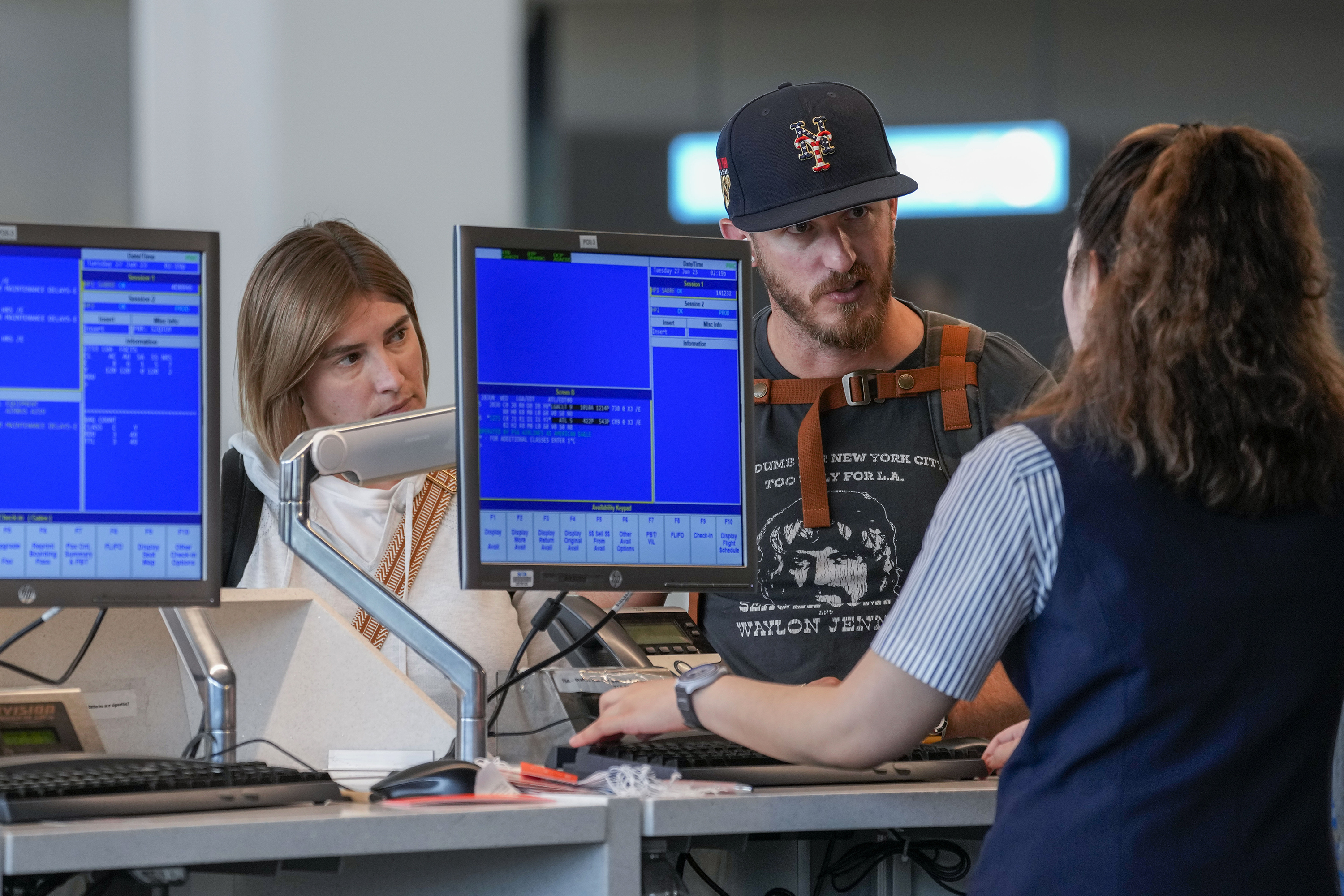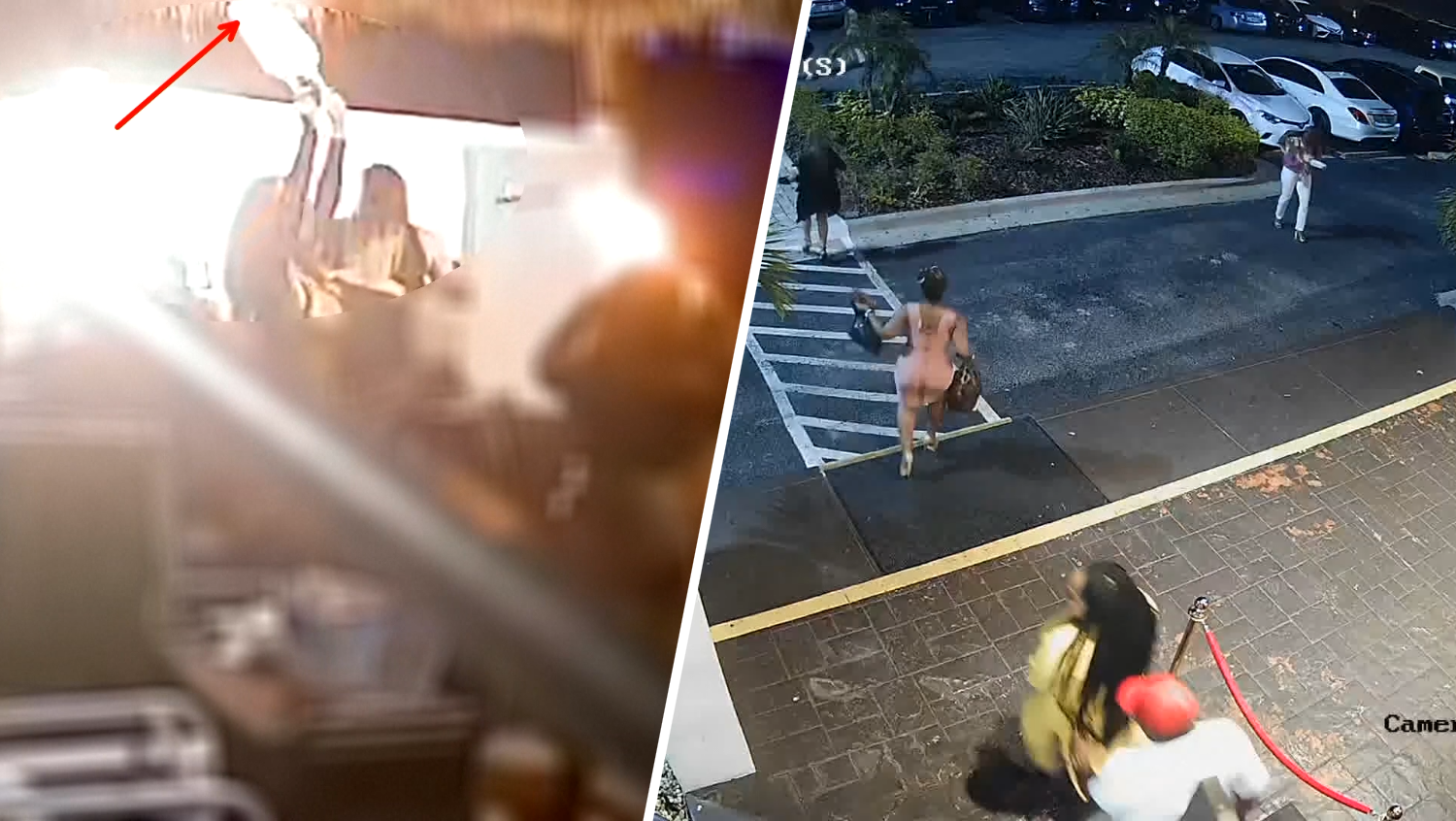O.J. Simpson, locked in jail and pondering his future, feels hopeful he will win a new trial on appeal because he believes jury interviews show “he was absolutely railroaded,” his lawyer told The Associated Press.
Attorney Yale Galanter said he and colleague Gabriel Grasso have spent extensive time with Simpson discussing his case and found him alternately melancholy and hopeful.
[ VIEW THE PHOTOS: Mug Shot Mania ]
“He is really very hopeful now, especially after the jury interviews. He knows that he was absolutely railroaded,” Galanter said by telephone from Miami.
Simpson and co-defendant Clarence “C.J.” Stewart were convicted Oct. 3 of 12 charges, including armed robbery and kidnapping, after a hotel room confrontation last year with memorabilia dealers. They face up to life in prison at sentencing Dec. 5.
[ VIEW THE PHOTOS: Tax Troubled Celebs ]
On Friday, defense lawyers for both men filed motions seeking a new trial.
U.S. & World
Simpson’s lawyers cited judicial errors and insufficient evidence, faulting Clark County District Judge Jackie Glass’ decisions during jury selection, her limitations on cross-examination of witnesses and her instructions to jurors.
Stewart’s lawyers alleged misconduct by the jury foreman in a separate filing and said Stewart should not have been tried alongside Simpson.
[ PLAY IT NOW: Anne Hathaway Talks Ex-Boyfriend Troubles ]
Galanter said he and Simpson believe that jury foreman, Paul Connelly, intimated that he thought Simpson should have been imprisoned 13 years ago in the deaths of his ex-wife, Nicole Brown Simpson, and her friend Ronald Goldman.
“He should not have been on that jury,” said Galanter, who also cited the foreman’s comment that he kept jurors deliberating for 13 hours into the night because he feared one of them might suffer some mishap on the way home and be unable to return.
“He commandeered that jury and took over,” Galanter said.
Connelly has said he was consistent in agreeing with Simpson’s murder acquittal.
Simpson, who is being held at the Clark County jail in a 7-by-14-foot cell, has little contact with other people, Galanter said.
His few visitors can’t see him in person. They talk to him via a live closed-circuit video hookup in which Simpson, in his cell, talks into a microphone and looks into a camera. The visitor does the same.
He is allowed two hours of visitation every two weeks, Galanter said. So far the only acquaintance who has visited is his friend Tom Scotto, whose wedding took Simpson to Las Vegas in September 2007.
But the lawyers, who have unlimited “contact visits” with their client, make sure one member of the defense team visits every day. Galanter has returned home to Miami, but Grasso, whose practice is in Las Vegas, is a consistent visitor.
Galanter said he has been studying a video recording of the jury’s post-verdict news conference while considering points to be raised on appeal to the state Supreme Court. He said it was surprising that jurors said they were most influenced by surreptitious audio recordings made by collectibles dealer Tom Riccio during the six-minute hotel room confrontation.
An FBI agent testified the recordings could not be authenticated and could not say whether they were altered before police took custody of them eight days after the confrontation. In the interim, Riccio sold the recordings to media outlets for $210,000.
Galanter acknowledged he never sought to suppress the recordings as evidence, because he believed they would help Simpson’s case.
“I wanted the jury to hear O.J. say, ‘Anything that’s not mine, give it back,’” Galanter said. “I wanted them to hear him say to his compatriots, ‘You can’t lie. You can’t lie. You’ve got to tell the truth.’”
Instead, he said, jurors focused on Simpson shouting, “Nobody leaves this room.” That statement formed the basis of the kidnapping charge leveled by prosecutors, who also argued that ownership was not a defense to robbery.
Galanter said juror comments showed they never considered Simpson’s state of mind. He said he wanted jurors to hear that at no time in the six-minute encounter did anyone explicitly mention a gun being shown.
“If I’m in a room and somebody pulled a gun, the first thing I would expect to hear is, ‘Put that thing away,’ or ‘No need for that.’ But in the six minutes, there is nothing said to indicate a gun was present.”
Related Content from AccessHollywood.com:
PLAY IT NOW: O.J.'s Walk Of Shame
MORE ACCESS ON THESE TOPICS: Courts - Athletes - Celebrities



